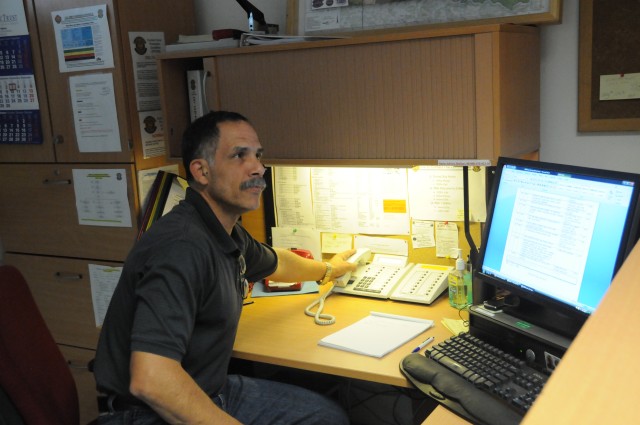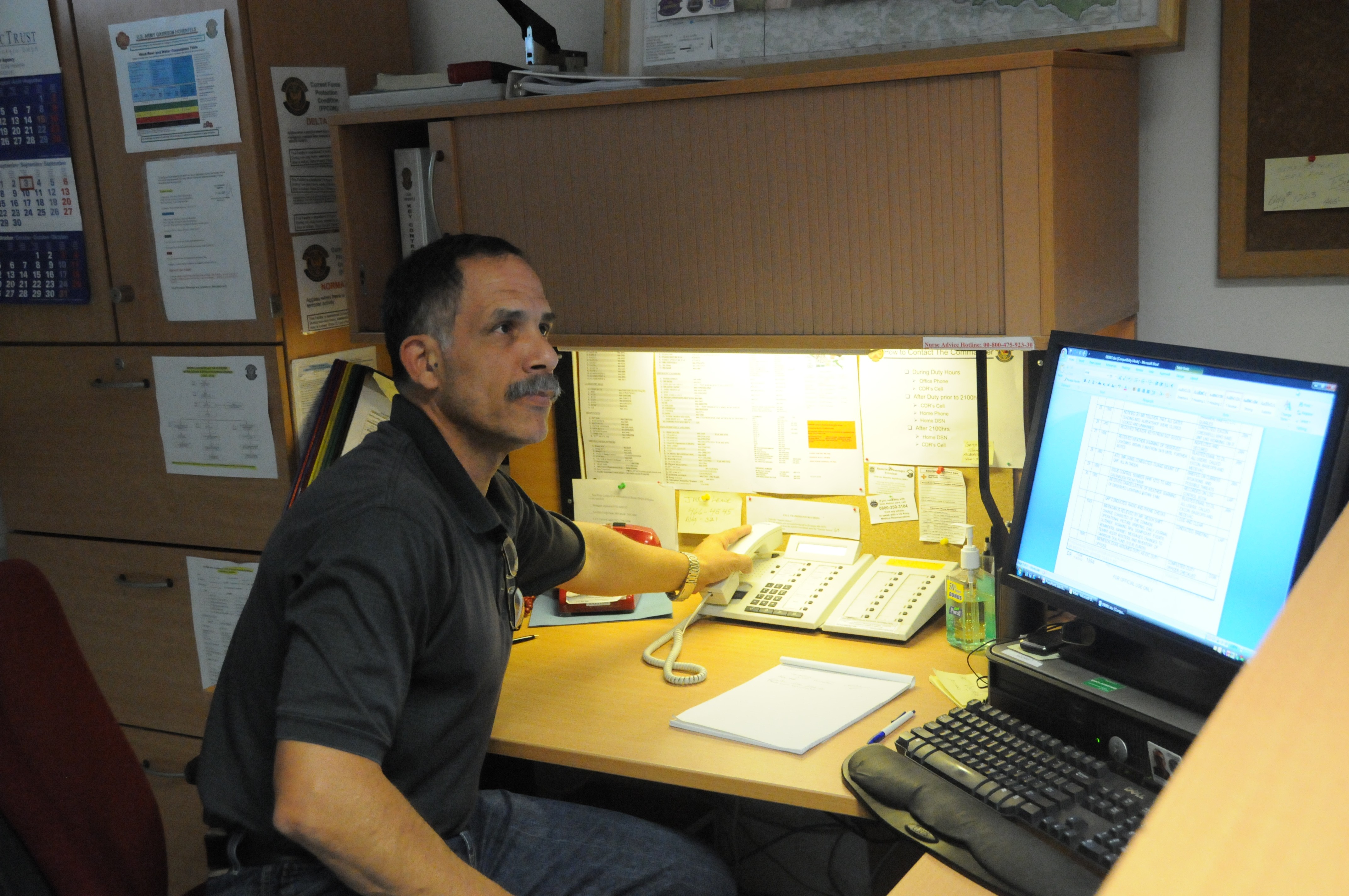
If you were to walk into Bldg. 309, headquarters of U.S. Army Garrison Hohenfels, on any given day and take a look at the person sitting behind the Installation Operations Center desk, theirs might seem like any other job.
They might be on the phone or working on the computer, but the five men who work the IOC desk are not your typical office drones. Actually, they are probably best described as superheroes in disguise.
"We do the things people don't see, the things behind the scenes," said Chris Koivisto, supervisory operations specialist.
One of the most important of those behind the scenes functions is to serve as a central location for emergencies that occur either on or off post.
"You could say we are the overseas equivalent of 911-you just need to dial a few more digits," said Koivisto.
If any member of the Hohenfels community needs emergency assistance, whether it is a family member having a heart attack or a training accident on post, they can call the IOC and know they will be understood and that help will be on the way.
"Especially for a new person who doesn't know anybody and doesn't know the language, to call in and speak English to someone and know they are being understood, that is a big deal," said Koivisto.
After receiving an emergency call, the officer on duty will notify the appropriate agency to get that caller help as quickly as possible.
"We have assets at our fingertips that we can call in and fix most situations," said Koivisto, adding that all IOC officers are trained in emergency management through the Federal Emergency Management Agency.
"Those are some subject matter experts when it comes to emergency management," said Tony Williams, who worked at the IOC desk for a year before becoming garrison chief of operations.
Those emergency management skills extend far beyond handling calls about isolated emergencies.
If a disaster, natural or man-made, strikes, the IOC turns into the Emergency Operations Center and becomes ground zero for crisis management. They notify the garrison commander and agency directors and begin sorting through information with the ultimate goal of returning the community to normal operations as quickly as possible.
All these procedures are practiced annually during the installation force protection exercise and throughout the year with training and other events.
"We 'what if' everything to death because we want to be as prepared as we can be," said Koivisto.
And as if constantly working to keep the garrison and its community members safe was not enough, the IOC staff fulfill many other duties that are almost too numerous to count.
They send out information about weather warnings, school closings and road closures. They run video teleconferences for the garrison, plan ceremonies such as changes of command, and place information on the Command Information Channel. They coordinate reintegration for re-deploying Soldiers, maintain the emergency taxi ride home program, and receive Red Cross messages after hours. They often serve as a liaison between hospitals and units, coordinate with military police to issue emergency vehicles and notify social work services when needed.
They do all of this in twelve hours shifts day and night, every day of the week, every week of the year, including Christmas, Thanksgiving, Fourth of July and any other holiday on the calendar.
"There would be a huge void without them," said Williams. "A lot of people wouldn't sleep very well at night."
To succeed in a job with such an incredibly diverse job description requires a person with a unique skill set and a wealth of knowledge about the system.
"We have to be able to think fast: What is the best course of action' What are your resources' How you think can save somebody's life," said Luis Pagan-Arroyo, IOC duty officer.
On top of being good on their feet, Koivisto said compassion is their number one asset.
"The bottom line is how would I like the situation to be handled if I was the one on the other end of the line' Compassion, understanding and basic human kindness is what we try to inspire in everybody," said Koivisto.
However, compassion can be an asset or a liability. More than anything, the staff at the IOC desk takes their responsibility to the community very seriously.
"It is a very fulfilling job," said Koivisto. "If you can help just one person you get to take that home with you. Though there are those times you can't help and someone dies-you take that home with you too."

Social Sharing